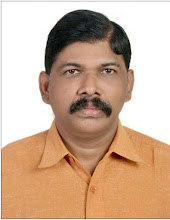Made under the banner of Bimal Roy productions, Parivar and Apradhi Kaun were two of the first few films produced by Bimal Roy that were directed by one of his assistants, Asit Sen. Here, the name of the director often creates confusion for many, even when it has been clearly stated in books, interviews and journals of the gone era. However, since multiple sites on the internet keep quoting, simply borrowing it from other portals without confirming the fact, the wrong information keeps getting repeated creating a ripple effect.
Giving a brief account of the films, Parivar, released in 1956, is a light-hearted family drama and its exclusivity remains in the positive message pointing towards the importance and contribution of women in a joint family. Featuring Durga Khote, Bipin Gupta, Usha Kiron, Jairaj, Sajjan, Kumud, Anwar, Dhumal, Agha and more, it has a guest appearance by Kishore Kumar too in a song. The film is based on the story by Panchu Mukherji with music by Salil Choudhury and lyrics by Shailendra.

Exploring a completely different genre, the 1957 film Apradhi Kaun is a whodunit murder mystery, based on a Bengali novel Kaalo Chhaya by author Premendra Mitra, who also directed a Bengali film on the subject with the same title. Featuring Abhi Bhattacharya, Mala Sinha, Jagirdar, Dhumal, Murad and more, the Hindi version is also the debut film of Tarun Bose and reportedly was supposed to be initially titled Kaali Chhaya. The film has soundtrack composed by Salil Chowdhury and lyrics by Majrooh Sultanpuri.
Coming to the confusion in the director’s name, both Parivar and Apradhi Kaun have actually been directed by the famous, heavy-built actor Asit Sen, well-known for his comic roles in many popular movies. So these two films have no relation with the other renowned director (with the same name) Asit Sen, fondly remembered for his memorable films Mamta (1966), Anokhi Raat (1968), Khamoshi (1969), Safar (1970) and more. Strangely, even the most popular and reputed portals online do not differentiate in their works and consider only one Asit Sen as the director of all the above-mentioned films.
Focusing on the comedian Asit Sen in particular, here we have a rare instance of a director choosing to be an actor in the later part of his career, who at present is only remembered for his unique dialogue delivery, performing the lines at a funny slow pace. Sen became Bimal Roy’s assistant post shifting to Bombay; and after a decade of assisting and directing two films for his mentor, he decided to prefer doing small roles in films instead of continuing direction. Luckily, the audience unanimously appreciated and loved his appearances as an entertaining comedian.

Asit Sen as a director can be prominently found in the memoirs and interviews of family members of the creators and in books by reputed authors too. However, here would like to mention an interview of Sen in Screen news magazine from October 1962, wherein he also shares how his son was quite disturbed coming back from school one day, after friends teased and called him “Jasoos Ka Bacha” in the class, mimicking Sen’s portrayal of Gopichand Jasoos in the hit film Bees Saal Baad.
The article titled Just a Problem Dad begins with:
“Step by step, with patient and determined labour, he had climbed up to become a director from a fourth directorial assistant – holding the clap board before the camera at the start of every new set, keeping notes of the “takes” to be printed and those to be scrapped, arriving on the sets before anyone else came and leaving it after everyone else had left. Then post thirteen years as assistant to Bimal Roy, he directed Parivar and Apradhi Kaun for his mentor.
As assistant director and later even as director, he had wished to act, to step into the camera field. This wish, too, had been fulfilled and he had played many types of roles – long, short, comic, serious and important of supporting characters.”
So the creative personality, who actually began as a director, wilfully decided to be a comic-actor throughout his career; and the world today knows him exactly like that, forgetting his directorial ventures.
But interestingly, the 1962 article also ends with this enlightening note: “At studios and filmland gatherings, people approach Asit Sen in all seriousness — no antics, no light talk. To his friends in the industry, he is no comedian. Many know him as a man who loves peace and when out of the camera field, always withdraws to a quiet corner on the sets.”
Hope this write-up helps in giving the deserving credit to the director turned actor loved by one and all.
(The writer is a critic-columnist, an explorer of cinema and author of 'Did You Know' series on Hindi films also active at bobbytalkscinema.com)
Also Read: CinemaScope: From Jallikattu to Soorarai Pottru, regional cinema finds new audience base on OTT
source https://www.freepressjournal.in/entertainment/cinemascope-tracing-asit-sens-directorial-footsteps






























0 comments:
Post a Comment